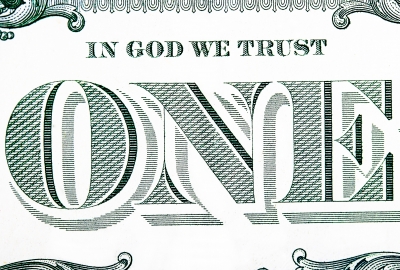 Note: This is the introductory post to a series that explains economic terms and concepts from a Christian perspective. You can find the most recent list of entries listed below under “Latest entries.”
Note: This is the introductory post to a series that explains economic terms and concepts from a Christian perspective. You can find the most recent list of entries listed below under “Latest entries.”
I call it the “Dow Conundrum.” At least once a week, for as long as I can remember, I’ve heard about the Dow Jones Industrial Index (DJIA). But I didn’t really know what it meant or why it mattered. So a few years ago, I decided to ask a range of people, from entrepreneurs to teenagers, if they had heard of the DJIA (all had), if they knew what it measured (most knew it had to do with the stock market), and why it mattered so much that it was mentioned in news reports every day (none of them – not one — could explain it’s significance).
And it’s wasn’t that I picked a particularly economically illiterate sample for my experiment. A couple of years ago Adam Davidson of NPR’s Planet Money wrote,
Turn on the news on any given day, and you’re likely to hear about the Dow Jones industrial average. It is the most frequently checked, and cited, proxy of U.S. economic health. But a lot of people — maybe most — don’t even know what it is. It’s just the stock prices of 30 big companies, summed up and roughly averaged. That’s it.
And what does the daily movement of this number have to do with the lives of most Americans? Not much.
I’d like to think I have an above-average grasp of business and economics. I’ve taken economics classes in high school, college, and grad school. I have an MBA. When I say I didn’t really know what the Dow Jones meant or why it mattered, I mean I didn’t know until 2012 at the age of 42. I had spent my entire life not knowing because I was too embarrassed to ask. I assumed other people must know and so I didn’t want to reveal my ignorance.
The truth is that most people don’t understand basic economic concepts. And even most of those who can define economic terms because they had them on an Econ 101 exam do not truly understand their significance (or, in the case of the DJIA, their insignificance). This is a problem for most Americans but an especially acute problem for Christians. Before we can “seek the welfare of the city” (Jeremiah 29:7) we have to know what economic concepts mean and how they should be applied. We simply can’t be effective in our role as citizens when we don’t understand economics.
To help close that economic knowledge gap, I’m starting a weekly series that will attempt to define and explain a range of economic terms from a Christian context. The purpose is not to present a theology of economics, but simply to provide a basic level of understanding that will help Christians think more clearly about how to apply their faith commitments to economics and public policy.
The three broad categories in this series are “What Every Christians Should Know” (i.e., most all Christians need to understand these), “What Most Christians Should Know” (i.e., more advanced concepts that are useful, but not essential, for Christians to know), and “What Some Christians Should Know” (i.e., concepts applicable mostly to Christians in particular fields or vocations, such as business, banking, government, etc.). This post will be updated to include the latest term under one of those three categories.
Latest Entries
What Every Christians Should Know
• ‘The Economy’ (Gross National Product)
• Money
What Most Christians Should Know
• The Dow
• Tariffs and Balance of Trade
What Some Christians Should Know
(Entries to come.)
If you have suggestions for terms or concepts to be covered in this series, send them to me at [email protected].
A note on bias: Economics is prone to a range of biases, from the moral to the political to the personal. Since I’m writing this series for a think tank dedicated to the study of religion and liberty, there will obviously be a particular point of view. I make no apologies for the biases I hold (which could be summarized as an “Acton bias”) but I do intend to try to present the concepts neutrally whenever possible.

